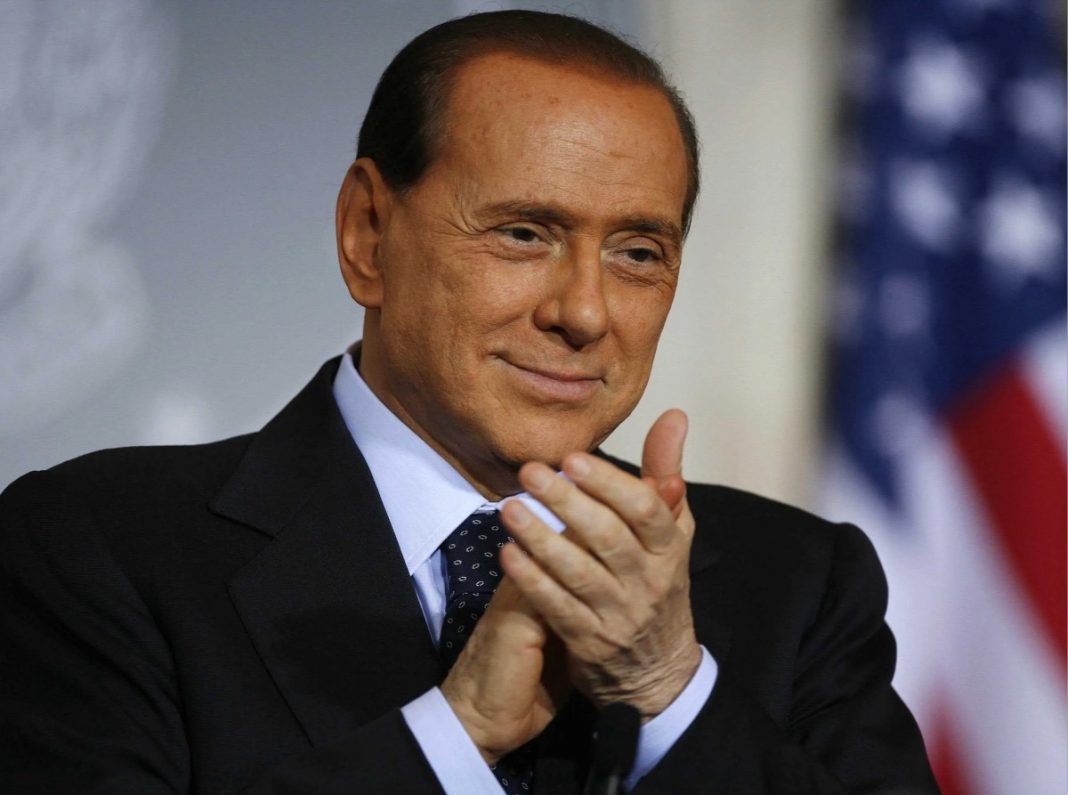MILAN, Italy — Silvio Berlusconi, the flamboyant media tycoon who, with his privately owned television channels and politically charged narratives, rose to become Italy’s most controversial and prosecuted prime minister, died on Monday, June 12, 2023, at San Raffaele Hospital in Milan. He was 86.
Mr Berlusconi’s death was reported by several news outlets in Italy. While the cause of death was not disclosed, it was noted that he was recently hospitalized for chronic leukemia treatment.
To Italians, Mr Berlusconi represented a political enigma. His performances were often characterized as a blend of comedy and tragedy, enlivened with scandal, gaffes, and off-color anecdotes. He was a man who drove the Italian economy into the ground, yet became an intriguing study for political scientists exploring television’s impact on voters.
Famed for his oratory skills and flamboyance, Mr. Berlusconi first assumed office in 1994 amid the “Bribesville” scandals that rocked Italy’s postwar power structure. His subsequent terms in office were frequently plagued by scandal and corruption charges, yet he retained a robust parliamentary majority that testified to his enduring popularity.
Berlusconi’s entrance into politics was a spectacle in itself. Framed by supporters as a selfless sacrifice for Italy, it was seen by critics as a cynical move to shield his financial interests and dodge legal repercussions from his business affairs.
He led Italy’s largest parliamentary majority since World War II from 2001, cementing his position as the country’s richest man. Despite international faux pas and economic downturns, Berlusconi’s political career seemed impervious, and his repeated comebacks exasperated his critics.
“Berlusconi was a politician who seemed to be made of electoral Teflon,” says Luigi Mancini, a political analyst based in Rome. “Scandals that would have toppled others left him unscathed.”
His governments spent significant time formulating laws perceived as shields for Berlusconi against an array of corruption trials. These laws included rulings that safeguarded his television networks, downgraded the severity of false accounting, and reduced the statute of limitations, effectively stymieing several trials concerning his businesses.
However, Berlusconi’s power began to wane amid charges of sexual improprieties, including accusations of paying for sex with an underage girl nicknamed Ruby Heart-Stealer. Further damaging his reputation were reports of “bunga bunga” sex parties, which Berlusconi dismissed as merely elegant dinners.
The fallout from these scandals led to widespread protests and dissent from influential institutions, including the Roman Catholic Church. Still, what truly ousted Berlusconi from power was the European debt crisis and growing uncertainty about his ability to navigate Italy through it.
By the time Berlusconi resigned in 2011, many held him responsible for damaging Italy’s global standing and financial health. His leadership period was seen as a lost decade, setting back Italy’s recovery efforts.
Beyond his politics, Berlusconi’s impact extended to his transformation of public life. His norm-defying and sensational approach, known as Berlusconism, has influenced politicians worldwide, including Donald J. Trump.
“Berlusconi offered a different template for a leader,” says political historian Gianna Rossi. “He was the most influential Italian politician since Mussolini, leaving a legacy that’s both transformative and controversial.”







